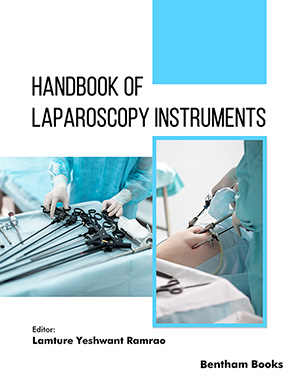Abstract
It has been demonstrated that mouse and human somatic cells can be reprogrammed into an embryonic stem cell-like state by introducing combinations of the transcription factors. The generation of such induced pluripotent stem cells (iPSCs) has enabled the derivation of disease-specific pluripotent cells which opens up new avenues of disease modeling and provides valuable experimental platforms. Moreover, technologies for creating humanized animal models by human iPSCs will be available as well, which will increase the utility of humanized mice for research. Emerging evidences suggest, however, that immunogenicity of iPSCs seems to be a vital and controversial issue surrounding potential of iPSCs. Recent studies on induced multipotent progenitor cells (iMPCs) extend the applications of iPSC technology and provide promising candidates for disease modeling. In this review, we introduce a wide range of applications of iPSCs in disease modeling and discuss the immune response on the use of iPSCs as well as a promising alternative for future directions of disease modeling.
Keywords: Disease modeling, immune response, immunogenicity, induced multipotent progenitor cells, induced pluripotent stem cells, reprogramming.
Current Stem Cell Research & Therapy
Title:Impact of Immune Response on the Use of iPSCs in Disease Modeling
Volume: 10 Issue: 3
Author(s): Zimu Zhang, Biao Huang, Fei Gao and Rongxin Zhang
Affiliation:
Keywords: Disease modeling, immune response, immunogenicity, induced multipotent progenitor cells, induced pluripotent stem cells, reprogramming.
Abstract: It has been demonstrated that mouse and human somatic cells can be reprogrammed into an embryonic stem cell-like state by introducing combinations of the transcription factors. The generation of such induced pluripotent stem cells (iPSCs) has enabled the derivation of disease-specific pluripotent cells which opens up new avenues of disease modeling and provides valuable experimental platforms. Moreover, technologies for creating humanized animal models by human iPSCs will be available as well, which will increase the utility of humanized mice for research. Emerging evidences suggest, however, that immunogenicity of iPSCs seems to be a vital and controversial issue surrounding potential of iPSCs. Recent studies on induced multipotent progenitor cells (iMPCs) extend the applications of iPSC technology and provide promising candidates for disease modeling. In this review, we introduce a wide range of applications of iPSCs in disease modeling and discuss the immune response on the use of iPSCs as well as a promising alternative for future directions of disease modeling.
Export Options
About this article
Cite this article as:
Zhang Zimu, Huang Biao, Gao Fei and Zhang Rongxin, Impact of Immune Response on the Use of iPSCs in Disease Modeling, Current Stem Cell Research & Therapy 2015; 10 (3) . https://dx.doi.org/10.2174/1574888X09666140711120449
| DOI https://dx.doi.org/10.2174/1574888X09666140711120449 |
Print ISSN 1574-888X |
| Publisher Name Bentham Science Publisher |
Online ISSN 2212-3946 |
 38
38
- Author Guidelines
- Graphical Abstracts
- Fabricating and Stating False Information
- Research Misconduct
- Post Publication Discussions and Corrections
- Publishing Ethics and Rectitude
- Increase Visibility of Your Article
- Archiving Policies
- Peer Review Workflow
- Order Your Article Before Print
- Promote Your Article
- Manuscript Transfer Facility
- Editorial Policies
- Allegations from Whistleblowers
- Announcements
Related Articles
-
Effects of Altered Plasminogen Activator Inhibitor-1 Expression on Cardiovascular Disease
Current Drug Targets The Brown Adipose Cell: A Unique Model for Understanding the Molecular Mechanism of Insulin Resistance
Mini-Reviews in Medicinal Chemistry Editorial [Hot Topic: Adrenergic Receptors as Novel Targets for Cancer Therapy (Guest Editors: D.G. Powe and F. Entschladen)]
Current Cancer Therapy Reviews Far-infrared Ray-mediated Antioxidant Potentials are Important for Attenuating Psychotoxic Disorders
Current Neuropharmacology Vitamin D Deficiency May Be Associated with a More Rapid Decline in CD4 Cell Count to <350 Cells/µL in Untreated HIV-Infected Adults
Current HIV Research Interval Exercise Therapy for Type 2 Diabetes
Current Diabetes Reviews Development and Evaluation of Nateglinide Loaded Polycaprolactone Nanoparticles
Micro and Nanosystems Beta-blockers in the Perioperative Period: Are there Indications other than Prevention of Cardiac Ischemia?
Current Drug Targets Sexual Dimorphism in Autoimmune Disease
Current Molecular Medicine Clinical Significance of Pleiotropic Effects of Statins: Lipid Reduction and Beyond
Current Medicinal Chemistry Ventricular Extrasystoles after First Dose of Sofosbuvir in a Patient Treated with Propranolol but not with Amiodarone: A Case Report
Reviews on Recent Clinical Trials Meet Our Editorial Board Member:
Current Diabetes Reviews Glucocorticoid Excess Induces Accumulation of Cardiac Glycogen and Triglyceride: Suggested Role for AMPK
Current Pharmaceutical Design Maternal Outcomes in Women with Major Degree Placenta Previa: An Observational Cohort Study
Current Women`s Health Reviews Mechanisms Linking Leptin to Arterial and Venous Thrombosis: Potential Pharmacological Targets
Current Pharmaceutical Design Diabetes and the Chronic Care Model: A Review
Current Diabetes Reviews Lipoproteins and Diabetic Microvascular Complications
Current Pharmaceutical Design Hypothalamic AMP-activated Protein Kinase as a Regulator of Food Intake and Energy Balance
CNS & Neurological Disorders - Drug Targets Anti-Insulin Receptor Antibodies in the Pathology and Therapy of Diabetes Mellitus
Current Diabetes Reviews Early Risk Factors for Nonadherence in Pediatric Type 1 Diabetes: A Review of the Recent Literature
Current Diabetes Reviews


























